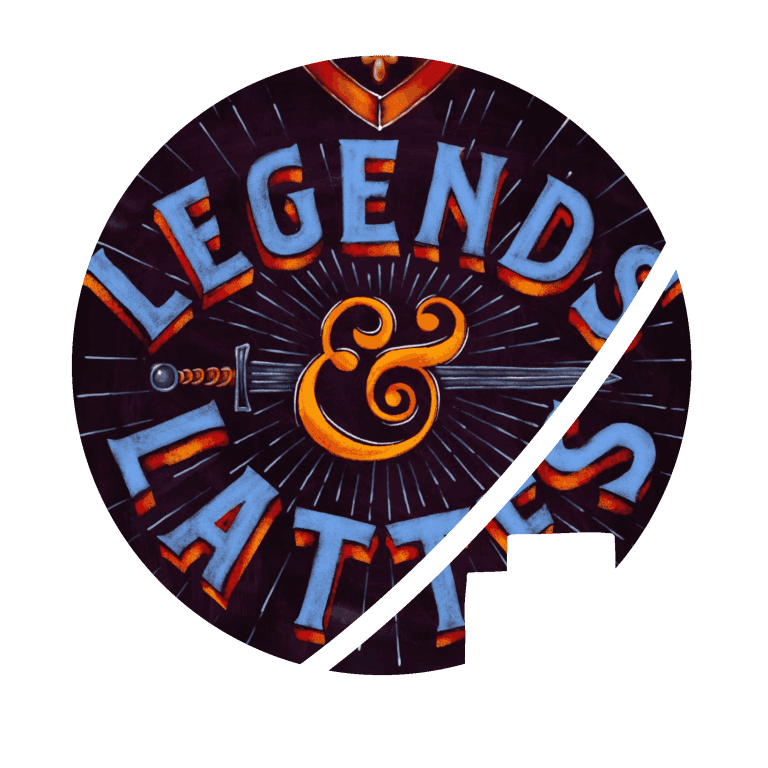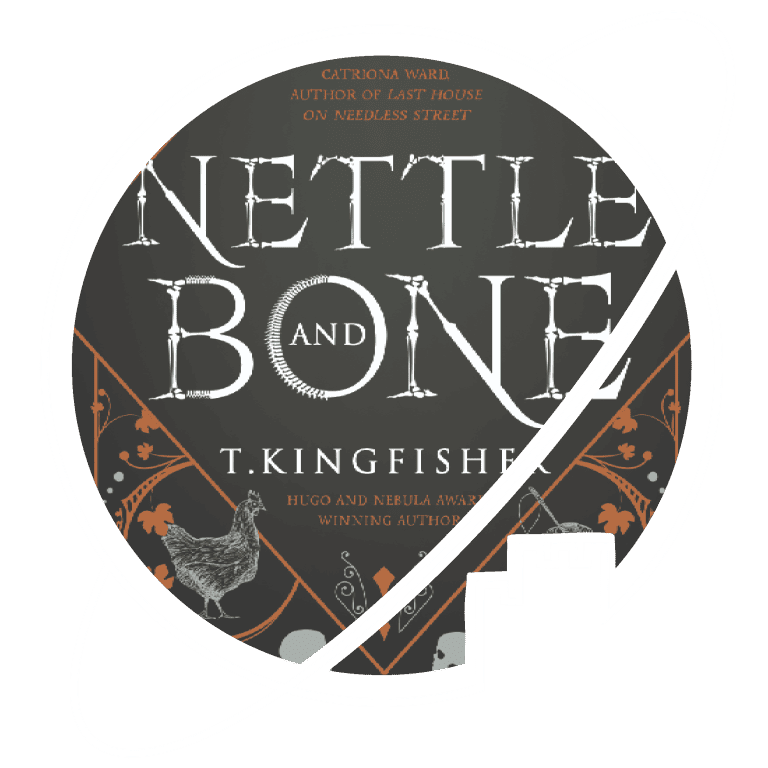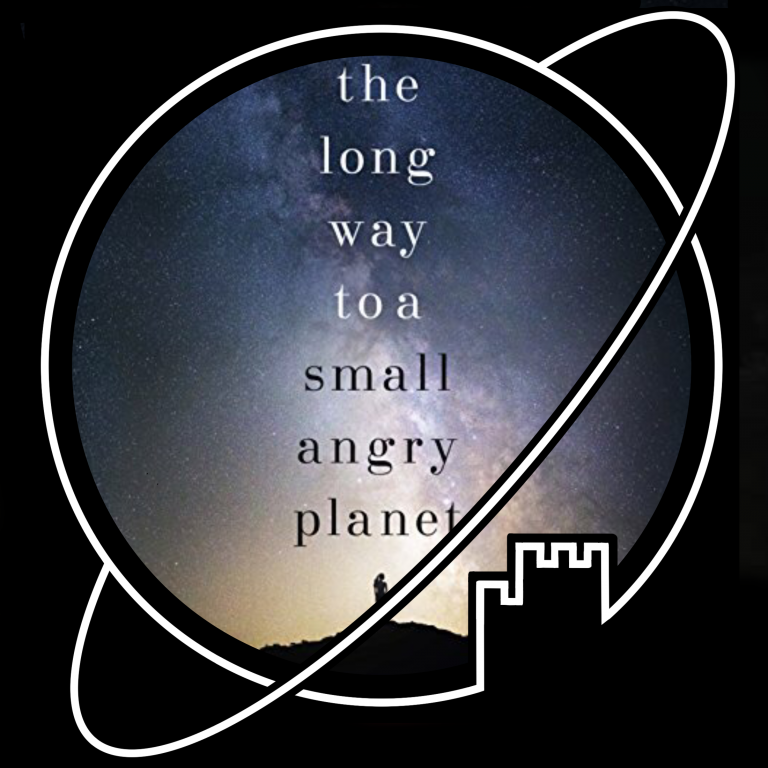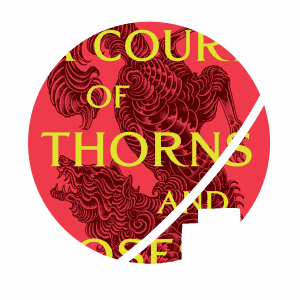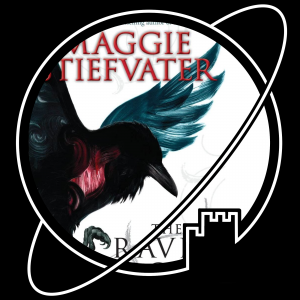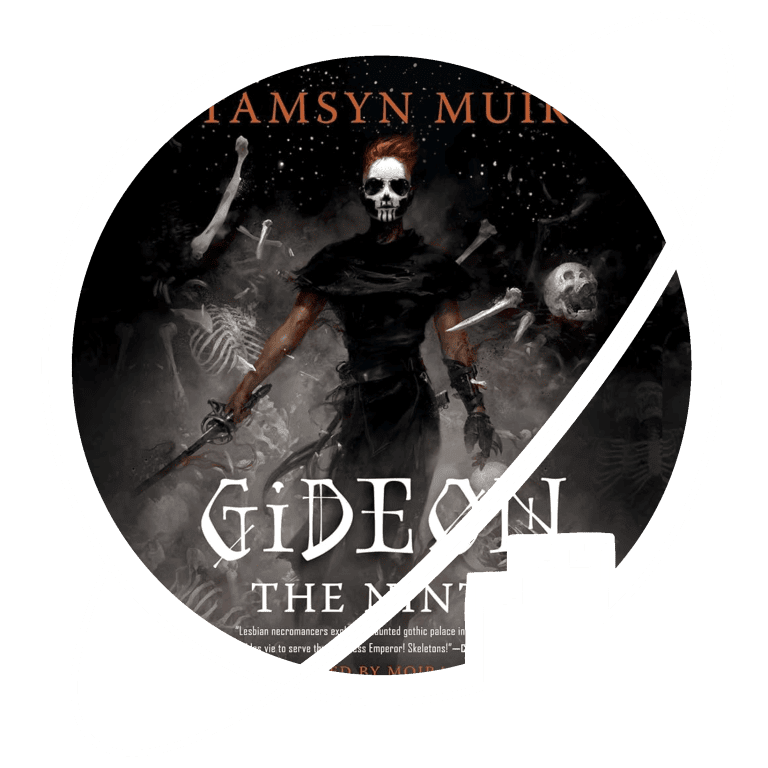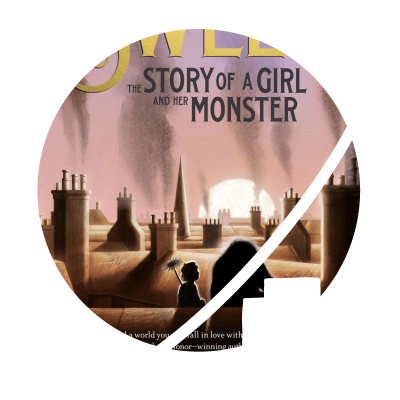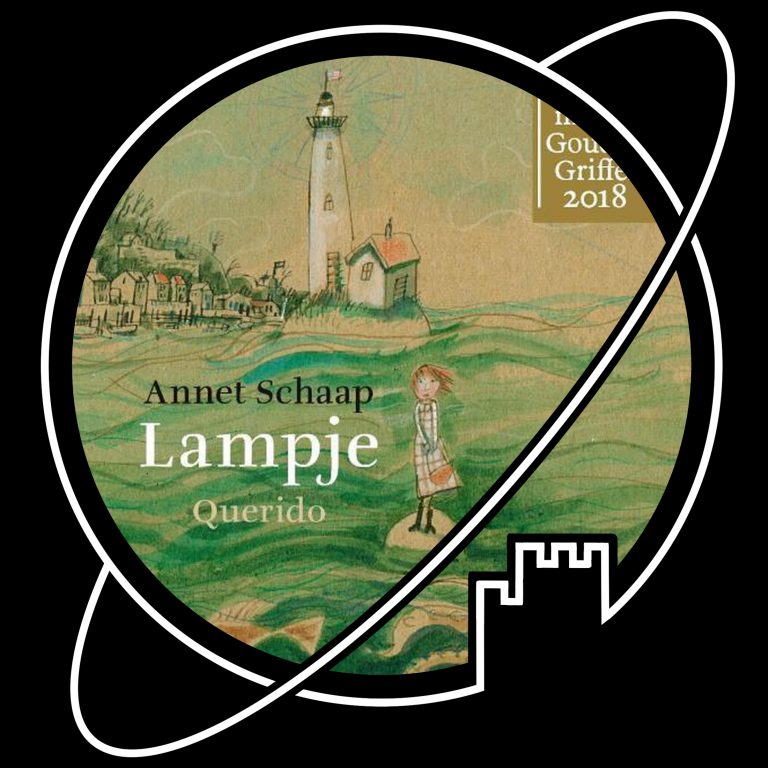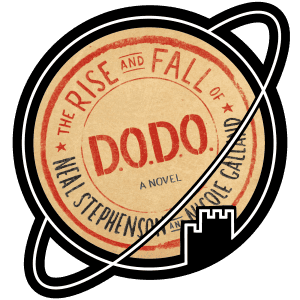A curated Collection of Fantasy and Science Fiction Media
Recent Updates
Time to get to know the Escape Velocity Collection’s curators! How? By asking them the questions that really matter! Let’s see what our curators have to say…
Today’s question is:
Do you prefer books or films?
This is a no-brainer for me, 100% books. I don’t nearly spend enough time reading books, but whenever I do manage to find some time and sit down with one, I find myself transported almost straight away. I have so many fond memories reading books and I hope to have many more. Movies on the other hand… While there are definitely movies out there that I really love, my tolerance for less-than-great-tv is really low.
Don’t ask me why, but I have a mild dislike for television, both tv-series and films. Maybe it is because I grew up spending my evenings painting models while my parents watched TV, but for some reason I need to be in a very specific mood or watch a really engaging movie for me to be able to really focus on the screen – and on the screen only. Most of the time, I’ll be either drawing or painting or writing (or unfortunately, scrolling some feed on my phone) and casting only the occasional glance at the screen – my hands just need to be busy. It’s a strange quirk for someone who can draft contracts for more than twelve hours a day with no problems – but for some reason, most movies can’t hold my attention.
I tend to prefer books, simply because it often takes me a while to get invested in something, and it sucks to get invested in characters only to be done with them after 2 hours. There’s definitely things that work really well in movies that work less well in books, and I like the fact that I can multitask while watching a movie., so it’s not all bad. I do find that if I’m in a movie theatre, I can enjoy pretty much any movie. If it’s unfolding in front of you on a big screen and you’re unable to just turn it off, it’s all good. Still, when watching movies at home, I… mostly just don’t.
I certainly prefer books, but in practice it’s often easier to put on a film or tv-series.
Books are great. They give me peace I can hardly find anywhere else. An experience I can enjoy at my own pace. A film, however, requires less commitment after a hard day’s work and other activities. In addition, while I can still be somewhat of a social creature while watching a film, when I’m reading a book I tend to ‘disappear’. This is fine by me, but Jasmijn doesn’t always think that’s a desirable result.
To be completely honest, though, I can really appreciate both media. If it has been some time since I’ve last seen a film, I’ll start to get cravings. And vice versa.
That’s it: another soul-searching question answered!
Still curious? Visit each curator’s page to see what they’ve recently been up to!
Check out our reviews of the media discussed in this post here:
No posts found!
- Book written by Grace Curtis
- Published 19 March 2024
- Standalone

Full disclosure: We received a free advance reading copy for Floating Hotel.

I’m not the biggest fan of low-plot stories. I read one Becky Chambers book and didn’t hate it, but I generally need stuff to be Happening in order to keep me engaged. I had a similar issue with Legends & Lattes, though as I listened to the audiobook I could just let it happen without having to really focus. Oftentimes with cosy books, you can miss a couple of minutes and you won’t miss much of the story.
I really enjoyed the setup of this book. You’re pulled in with the story of the hotel manager, which in turn introduces you to several other of the crew. Each new story explores the origin story of the crew member, as well as their current life on the ship. Throughout all this, a mystery is introduced, which keeps you on your toes and gives you a reason to keep reading.
The strongest part of the novel for sure are the characters Curtis introduces. Carl is my absolute favourite and I would have enjoyed to see more of him in the book, but there are plenty more characters I would have loved to find out more about. This book is mostly character driven, and it does a really good job at making you like its characters.
Overall, this type of story still isn’t really for me, but it was executed well enough that I enjoyed my time reading it. Especially near the end, I struggled to put it away!

Some books you read because you’ve wanted to read them forever, because they come highly recommended, or because they’ve won awards left, right, and centre. Other books are just thrown into your lap at the right time and you figure ‘why not?’. Floating Hotel is in the second category. It is perhaps not the type of book that I might otherwise have read, but it’s good to get out of your comfort zone every now and then.
Although… Floating Hotel is very much a comfort zone-book. It is an aggressively light read. I’ve read a few ‘cozy’ stories, lately, and Floating Hotel falls squarely in that corner of speculative fiction.
Each chapter of Floating Hotel follows a different staff member of the eponymous floating hotel as they go about their duties for the day (often derailing as the story progresses), while giving us that particular staff member’s story for ending up in the interstellar hospitality business. Each of them a misfit in their own world, they have come together as a found family under the kind leadership of supremely inoffensive hotel manager Carl.
There is a through line in Floating Hotel, but at times, the book almost feels like a collection of character-driven short stories. In fact, the through line (lines?) are probably better not thought about too much. You’re certainly not reading Floating Hotel for the plot.
So what are you reading it for?
I think Floating Hotel’s main attractions are probably its likeable characters, its unpretentious style, its gates-open-come-on-in storytelling. It’s the kind of book that takes no processing at all, a brains-off and go-with-the-flow experience.
I mostly enjoyed Floating Hotel, but it is not really my cup of tea. The story is set in a distant future, but it is a typical sci-fi-as-a-setting book. The same stories could easily have been told in a fantasy or even real world setting. It leans heavily into well worn tropes, without much variation or subversion. They’re well executed, but Floating Hotel really never surprises you (nor, I guess, does it intend to). It has loveable characters, but none really sparked for me. Overall, as someone who likes to take something from every book that they read, Floating Hotel is just a little too shallow.
Then again, I feel like Floating Hotel knows this. It does not pretend to ask or answer big questions. It is quick, short, easy. Floating Hotel is the kind of book that could have easily irritated me, but it never did, and I think that is because Curtis knows to keep it simple.
It is the one thing that sets Floating Hotel apart from the likes of The Long Way Round to an Angry Planet, which is far more ambitious, but falls flat a little when it tries to answer big questions and (in my eyes) fails because it is just not the type of book for it.
Overall, I think Floating Hotel is good at what it wants to do – though what it wants to do is just a bit too simple to really get me excited.
Tagged:
See also:
- Novel written by Cassandra Clare
- Published 27 March 2007
- Part one of the Mortal Instruments series


I picked this book up at the thrift store, years after having seen the show Shadowhunters on Netflix. I enjoyed the show. I remember it being a pretty inoffensive, typical YA urban fantasy. I’ll be honest, not much about the show really stuck with me, apart from perhaps what the characters vaguely looked like. I also remember discourse about how these books (or at least the character of Jace) apparently started out as Harry Potter fanfiction. It’s quite an interesting rabbit hole to go down, especially if we add the plagiarism accusations that have been leveled at Cassandra Clare in the past. I really enjoy exploring the context of a book and it’s author, and I think this context is probably the most interesting thing about City of Bones.
City of Bones felt incredibly empty to me. While I remembered the characters most from the TV-show, they are incredibly flat in the novel. Jace is just a vessel for the kind of quips that were funny when Buffy the Vampire Slayer did it, but are so awfully overused on the screen today that I can’t help but roll my eyes. Clary is uninteresting. Everyone else is just sort of there. I actually forgot about Simon, who had absolutely no place in this story. I don’t understand why he’s there all the time, when he does absolutely nothing to further the plot. I hated Simon. I hated him.
The story is also not particularly interesting. There is one twist near the end of the book that I find incredibly funny, but most of the story fails to keep me hooked. I could have thrown this book in a river at any point, and I wouldn’t have been remotely upset about not finding out how it ends.
There are five more books in this series, though it could probably have been cut down to three if Jace didn’t have to say something sassy every second sentence. Overall, I don’t know if there’s anyone I would recommend this book to. I guess it was an incredibly easy read, so at least it has that going for it.
Tagged:
See also:
- Book written by Travis Baldree
- Published 7 November 2023
- Prequel to Legends & Lattes
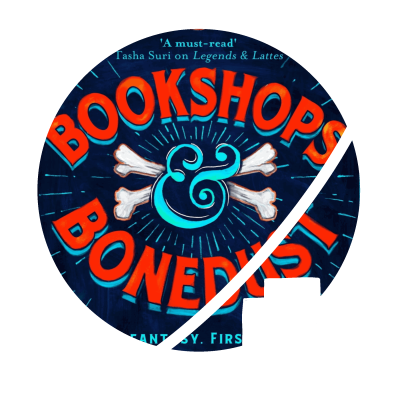

Listened to the audiobook with Travis Baldree himself – Like Legends & Lattes, well read.
Eh, shit.
Perhaps I shouldn’t have listened to Bookshops & Bonedust so quickly after I finished Legends & Lattes. Perhaps I should have known when I shut off the short story of Viv and her adventuring party actually in action that was an appendix to Legends & Lattes, and which was… eh.
In Bookshops & Bonedust, Baldree tries to repeat the trick he played with Legends & Lattes: we take our barbarian orc, place her in a contrasting setting, have her build up a small enterprise… we even have a ratfolk supporting character, and detailed descriptions of baked goods. What could go wrong?
Well. What goes wrong is that it just doesn’t work half as well the second time as it does the first. And what goes wrong is that if you add a lot of actual stakes to your book with a ‘high fantasy, low stakes’-tagline, it loses balance and stops working. What goes wrong is that we know Viv has a life of adventuring still ahead of her, and her in-and-out of her role as big brawny sword-swinging maniac just isn’t as convincing.
In fact, I feel Bookshops & Bonedust partly undermines Legends & Lattes in that Viv never refers back to her time at the bookshop in that, never acknowledges the inspiration she got from helping a small business on the verge of bankruptcy to relevance before. In fact, it undermines the very idea in Legends & Lattes that Viv is even trying something completely new, and her trepidations at the thought of gaining customers. And why would she be doing it without the people she met in Bookshops & Bonedust?
The bookshop-story itself is fun and scratches the right itches, though it is admittedly rather similar in set-up to Legends & Lattes. It still works though, and you really end up rooting for Fern, the bookseller.
But the throughline of the necromancer is annoyingly predictable and even somewhat dull. This is not the type of book where any of the characters you care about are in any danger, and you know it. It is not what I read this book for and it is not what this book is good at. It makes you rather feel like it could have been left out entirely. I wonder if I’ve ever read a book before where the climax was perhaps the least interesting bit.
Bookshops & Bonedust tries to expand beyond what Legends & Lattes offered, but I think in doing so, it loses a lot of what made Legends & Lattes worth recommending.
If you liked Legends & Lattes and you want more cozy fantasy, sure, give it a shot. Perhaps I’m overthinking it. Perhaps I’m being unnecessarily cynical. I don’t know. But Bookshops just feels like a cheap knock-off of Legends & Lattes, and I’m pretty disappointed. It is still fine, but nothing more than that.
Tagged:
See also:
- Book written by Hank Green
- Published 7 July 2020
- Part two of two
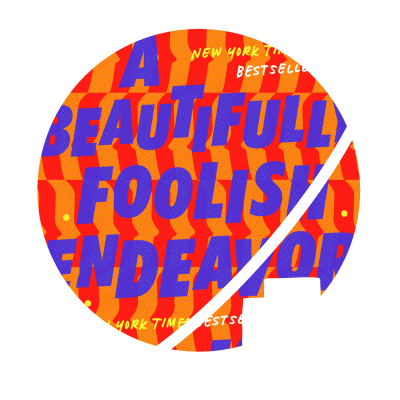

Like with my review of the previous book in this series, I want to say that this low rating is not because I think the book is plain bad – it was just a frustrating read for me. I do believe the book has an audience – that audience is just not me or people like me. Additionally, if you read my review of part one and still read that book, then my review of part two is not going to do anything for you, for I think people that loved the first book will love the second, and people that didn’t like it probably shouldn’t be interested in reading this one to begin with.
My main problem with An Absolutely Remarkable Thing was the prose, which is only alleviated very slightly in this sequel due to the fact that other characters get to speak more. I know other curators did find it easy to read, and it is, but it remains surprisingly hollow.
The book has a more conventional plot than the previous instalment, which was promising at first, but Green dodges the science-fiction questions and handwaves explanations, giving the impressions that the aliens’ science magic functions exactly as the plot demands. I am not necessarily a fan of Brandon Sanderson’s approach to storytelling, but Green would have done well to take a leaf out of his book here: Sanderson believes that a writer’s ability to solve a character’s problem through magic (or here, the aliens’ ‘science’) is directly proportional to a reader’s understanding of that magic. In this book, however, it is never made clear what the aliens can or can’t do, and as a result the actions required of the main characters feel completely random. In that, the A Beautifully Foolish Endeavour just feels a lot more poorly thought out than An Absolutely Remarkable Thing, which, though weird, was coherent in its plot and message.
The story continues asking questions on internet influence, and the second book adds questions on the influence of social media companies and the failure of governments to rein them in. These are relevant questions and if Green manages to gain an audience for them through his books, then all the more power to him. As works of fiction, though, I think they do not cut the mustard, and unless you are very interested in a book on social media, I would recommend you leave these alone.
Tagged:
See also:
- Novel written by Jonathan Auxier
- Published 25 July 2018

It’s been a long while since the last time a book brought me to tears. Sweep let me cry two times in short succession. Not even dignified tears, mind you. I was bawling. Of course, this means I loved it and I think everyone should read this book when they have the chance.
Sweep has very Dickensian vibes. I don’t have a particular fondness for stories set in Victorian London, neither for stories that highlight the really terrible life conditions of poor children in that time period. However, I certainly have a weak spot for stories that know how to take historical elements and reimagine them with the littlest bit of “fantasy magic”. Stories that make me feel raw emotions, but without crushing my sense of wonder and hope.
The author handles his subject matters with care. This became clear to me when the appearance of a golem was quickly followed up by a dive into Jewish folklore and history. The same sensitivity is also applied to the history of chimney sweeps and the inner world of the characters within the story. Sweep is officially written for a middle grade audience, but don’t be fooled by this label. This book has a (emotional) depth that many stories aimed at older audiences can only dream of.
As a writer, I’m in awe with how Jonathan Auxier crafted this story. It’s hard to elaborate while keeping away from spoilers, though. Let’s just say that, from a very early moment, both the reader and the protagonist learn how the story has to end. And yet, when the expected climax arrives, you’re still not ready for it. That’s truly a marvellous feat.
I’ll confess I’m having a hard time with finding the right words to convince you, the reader, to go read Sweep. I’m a little afraid to spoil the magic with technical analyses**.** However, I hope my contemplations above are enough to inspire you. If not, I’ll leave you with some questions that the themes of Sweep touch upon. Some food for thought, so to say… How long do kind acts echo in the lives of other people? Is love worth the pain of grief? And what is the meaning of courage and sacrifice?
© 2023 – Escape Velocity – A Curated Collection of Fantasy and Science Fiction Media
Privacy Overview
| Cookie | Duration | Description |
|---|---|---|
| cookielawinfo-checkbox-analytics | 11 months | This cookie is set by GDPR Cookie Consent plugin. The cookie is used to store the user consent for the cookies in the category "Analytics". |
| cookielawinfo-checkbox-functional | 11 months | The cookie is set by GDPR cookie consent to record the user consent for the cookies in the category "Functional". |
| cookielawinfo-checkbox-necessary | 11 months | This cookie is set by GDPR Cookie Consent plugin. The cookies is used to store the user consent for the cookies in the category "Necessary". |
| cookielawinfo-checkbox-others | 11 months | This cookie is set by GDPR Cookie Consent plugin. The cookie is used to store the user consent for the cookies in the category "Other. |
| cookielawinfo-checkbox-performance | 11 months | This cookie is set by GDPR Cookie Consent plugin. The cookie is used to store the user consent for the cookies in the category "Performance". |
| viewed_cookie_policy | 11 months | The cookie is set by the GDPR Cookie Consent plugin and is used to store whether or not user has consented to the use of cookies. It does not store any personal data. |










